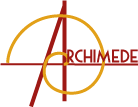Abstract
Title: Polemics, traditions and identities : reflections on John Chrysostom’s Discourses against Judaizing Christians
In his History of Antisemitism, Léon Poliakov describes John Chrysostom's Discourses against Judaizing Christians as « invectives of unbelievable violence » showing the « theological antisemitism » of the Fathers of the Church. However, Poliakov seems to ignore the literary traditions which influenced Chrysostom's Discourses. So, while they paid a tribute to the anti-Judaic polemical tradition which had characterized Christian literature since its beginning, the Discourses also depended on the pagan rhetorical tradition, which was conveyed in the teaching received by 4th-century Christian writers. This literary tradition, emphasizing the importance of clarity and reasonable use of passions, was to Chrysostom a powerful way to promote his point of view in the turbulent and violent religious context of Antioch. Thanks to the reconsideration of both of these traditions, we can bring to light what the real meaning of Chrysostom’s discourses is: they were an Antiochean priest’s contribution to the construction of a Christian identity. Therefore, if we study the context of the Discourses' elaboration and place them in the uninterrupted chain of the tradition, we can demonstrate these texts do not attest to « theological antisemitism », as Poliakov said, but are an intensive and vivid reflexion about Christian identity in Late Antiquity.
Keywords: John Chrysostom, anti-Judaic polemics, ancient rhetoric, Christianism, Late Antiquity.




